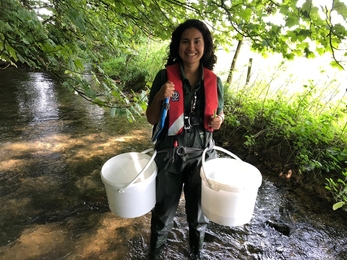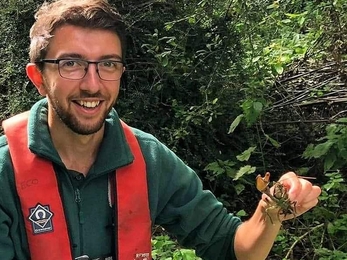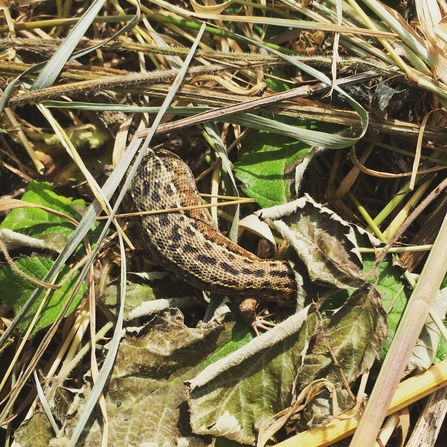When we first applied for the Trainee Ecologist position we both knew we were pursuing a unique opportunity. Not many organisations provide a position like this, which enables young conservationists to ‘get a foot in the door’ of a career in ecology. Although many seasonal positions exist they are often part time/zero hours and you might not get the range work we have both got to experience.
After starting with The Trust we both quickly came to the realisation that this was an incredibly friendly place to work, and despite the COVID-19 pandemic and lack of face-to-face contact, we were warmly welcomed and introduced to members of staff. Starting a job during lockdown poses challenges such as receiving training remotely, and we had a lot of new programmes to learn (such as GIS software and bat call analysis software). Nevertheless a great effort was made by our colleagues to help us which was thoroughly appreciated!
Ecological surveys consisted of surveying terrestrial invertebrates, white-clawed crayfish, reptiles, amphibians, small mammals, water vole/otter signs and bats. We both have previous experience in surveying a range of animals, however our roles also included surveying a number of species we were unfamiliar with, which was great. In particular, our experiences working in freshwater habitats entailed a number of new species including the white-clawed crayfish. This species in particular is highly protected, with only a small number of Ecologists in the country having a licence to survey them (one of them being our colleague Ben!). Ben’s work on this species enabled us both to get unique experiences, handling and assessing this rare species (and getting a good few selfies of course!).




